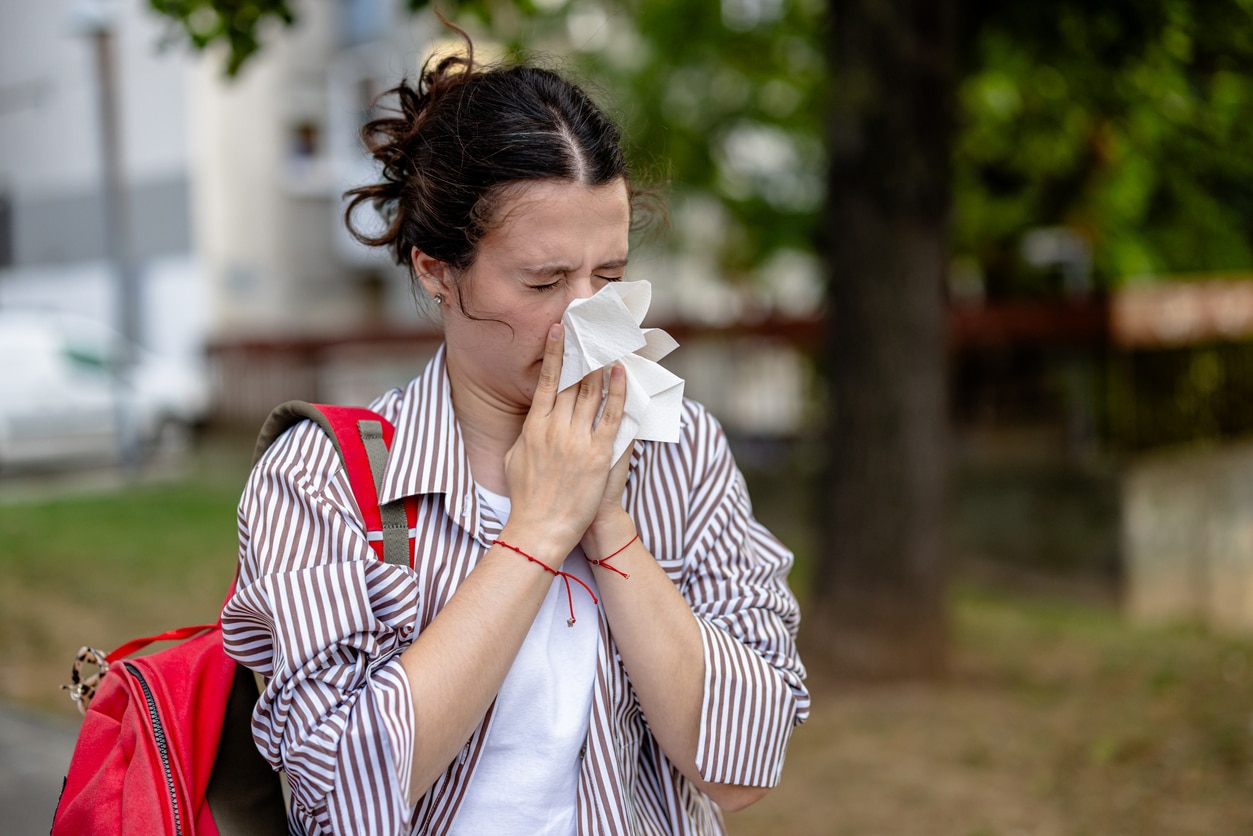Sinus infections are an inflammation of the tissue lining your sinus. Typically associated with facial pain, nasal congestion, runny nose, discomfort in the upper back teeth and a mild fever, sinus infections are one of the most common reasons for clinical visits in the U.S.
With summer in full swing, let’s take a look at how warm-weather factors like increased allergies and dehydration can affect your sinus health and what you can do about it.
The Allergy Connection

Allergies result from your immune system’s overreaction to harmless substances known as allergens. Common allergens may include mold spores, dust mites, pet dander and grass, tree and weed pollen. During an allergic reaction, nasal symptoms such as sneezing and congestion can inflame your sinus tissues, increasing the likelihood of sinusitis.
In the spring and summer, allergens like pollen, pet dander and mold spores may spike in your area. This rise in allergens can exacerbate allergy and sinus symptoms. If you’re struggling to enjoy summer due to these symptoms, here are some strategies to manage them:
- Allergy medication. Allergy medications can provide short-term relief from symptoms. Look for antihistamines, decongestants, nasal sprays or other allergy medications to help minimize the impact of allergens.
- Allergen avoidance. Allergen avoidance is the practice of identifying the allergens you’re sensitive to and putting a plan in place to avoid contact. For example, if an allergy test reveals a pollen allergen, you should avoid the park and close your windows on high-pollen days.
- Clean out allergens. There may be more allergens in your home than you realize. Mold can grow in hot and humid environments like kitchens or bathrooms, dust mites can hide in bedding, pets can spread dander and pollen can ride in on your clothes and hair. Give your house and pets a thorough cleaning at least once a week and shower upon returning home to help prevent the spread of allergens.
The Dehydration Connection
Healthy sinuses rely on mucus to flow smoothly through the nasal passages. When dehydration sets in, mucus can become thick and clog the sinuses, leading to inflammation and discomfort. Increased dehydration can intensify sinus pressure and cause headaches.
A combination of increased heat and physical activities like running or swimming can lead to dehydration. The Mayo Clinic recommends a daily intake of about 15.5 cups of water for men and 11.5 cups for women, though you may need more on particularly hot or active days. If you feel congestion or facial pain, try drinking a large glass of water. If sinus issues persist longer than 10 days, contact your provider for an appointment.
Don’t let sinusitis ruin your summer plans. Reach out to Ear, Nose & Throat Associates today to speak with one of our specialists about maintaining your sinus health throughout the season.